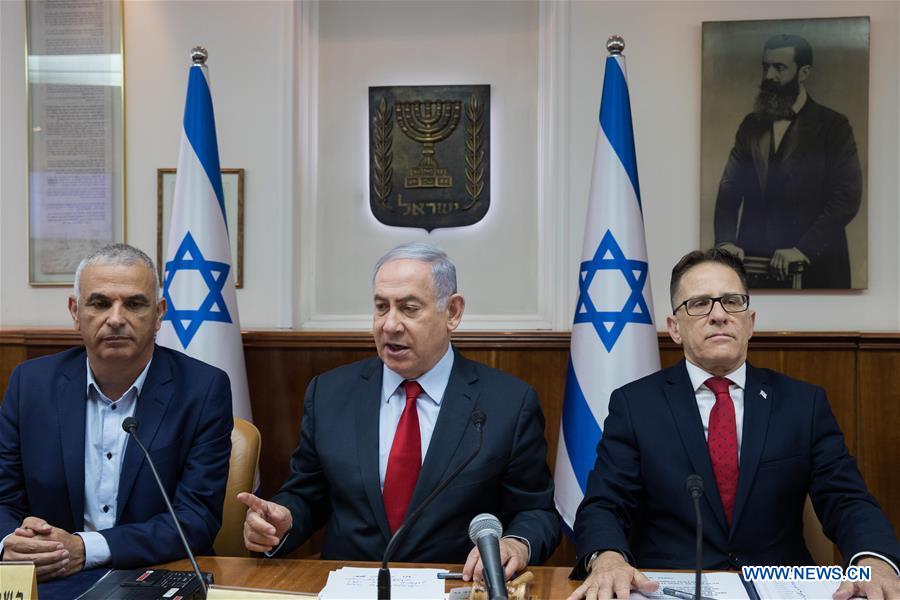 ?
?Israeli Prime Minister Benjamin Netanyahu (C) attends a weekly cabinet meeting at the Prime Minister's office in Jerusalem, on June 24, 2019. Benjamin Netanyahu on Monday said that he expects Russian President Vladimir Putin to arrive in Israel later in 2019, a sign to strengthen ties between the two countries. (Xinhua/JINI/Noam Revkin Fenton)
JERUSALEM, June 24 (Xinhua) -- Israeli Prime Minister Benjamin Netanyahu said on Monday that he expects Russian President Vladimir Putin to arrive in Israel later in 2019, a sign to strengthen ties between the two countries.
Netanyahu made the remark at the start of a meeting with Russian National Security Council Secretary Nikolai Patrushev in Jerusalem.
The prime minister said that Putin is expected to arrive later this year to lay the cornerstone for a memorial to the Siege of Leningrad, and to launch the events of the 75th anniversary of the liberation of the Nazi death camp of Auschwitz.
At the start of their meeting, Netanyahu thanked Patrushev for the increasing security ties between their countries.
He also reiterated his position that Israel will not allow Iran to establish military bases in Syria, next to the disputed border with Israel. "We will do everything to prevent it from acquiring nuclear weapons," he added.
Patrushev arrived in Israel on Sunday for a rare tripartite security meeting that will be held on Tuesday with U.S. National Security Adviser John Bolton, Head of Israel's National Security Council Meir Ben Shabat, and Netanyahu.
The Israeli Prime Minister's Office said the talks will focus on the future of the operations of Israel, the United States and Russia in relation to Iran and Syria.
Patrushev said the meeting will focus on ensuring a long-term political agreement in Syria. According to the Russian news agency Interfax, he said the talks will include discussion on "positive steps that can be taken" in Syria and other Middle East countries.
Netanyahu and Putin have held regular phone talks and meetings in Moscow as part of the coordination between the two countries' militaries over their actions in Syria.
Both Russian and Israeli armies coordinate their moves in Syria to avoid clashes. Russian forces fight alongside Syrian President Bashar al-Assad's army and Israel's air force has carried out hundreds of air strikes, saying the attacks aim at Iranian and Hezbollah targets.















